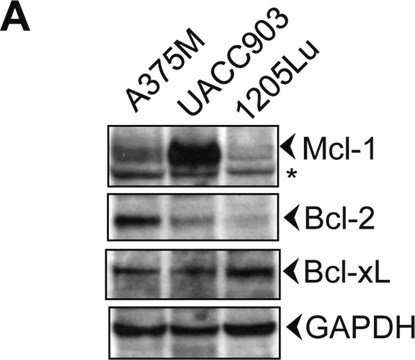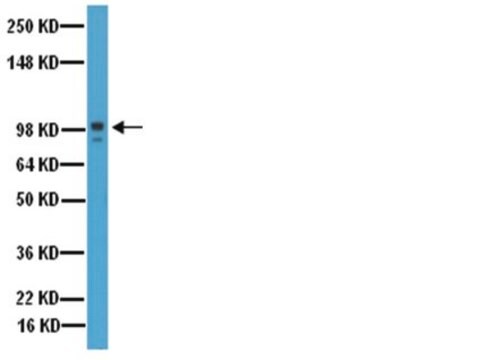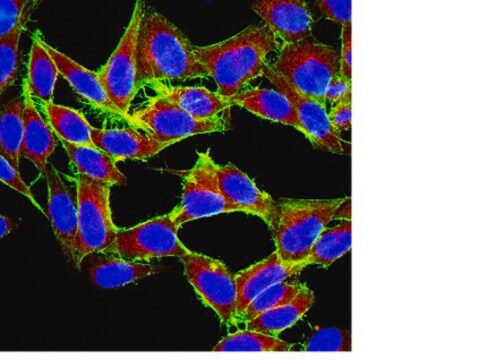MAB3503-I
Anti-Apaf-1 Antibody, clone 2E12
clone 2E12, from rat
Synonyme(s) :
Apoptotic protease-activating factor 1
About This Item
Produits recommandés
Source biologique
rat
Niveau de qualité
Forme d'anticorps
purified immunoglobulin
Type de produit anticorps
primary antibodies
Clone
2E12, monoclonal
Espèces réactives
human
Technique(s)
electron microscopy: suitable
immunocytochemistry: suitable
immunoprecipitation (IP): suitable
western blot: suitable
Isotype
IgG2aκ
Numéro d'accès NCBI
Numéro d'accès UniProt
Conditions d'expédition
ambient
Modification post-traductionnelle de la cible
unmodified
Informations sur le gène
human ... APAF1(317)
Description générale
Spécificité
Immunogène
Application
Apoptosis & Cancer
Western Blotting Analysis: A representative lot detected Apaf-1 in Western Blotting applications (Moriishi, K., et. al. (1999). Proc Natl Acad Sci USA. 96(17):9683-8).
Immunocytochemistry Analysis: A representative lot detected Apaf-1 in Immunocytochemistry applications (Hausmann, G., et. al. (2000). J Cell Biol. 149(3):623-34).
Immunoprecipitation Analysis: A representative lot detected Apaf-1 in Immunoprecipitation applications (Moriishi, K., et. al. (1999). Proc Natl Acad Sci USA. 96(17):9683-8).
Electron Microscopy Analysis: A representative lot detected Apaf-1 in Electron Microscopy applications (Hausmann, G., et. al. (2000). J Cell Biol. 149(3):623-34).
Qualité
Western Blotting Analysis: 1 µg/mL of this antibody detected Apaf-1 in 10 µg of Jurkat cell lysate.
Description de la cible
Forme physique
Stockage et stabilité
Autres remarques
Clause de non-responsabilité
Vous ne trouvez pas le bon produit ?
Essayez notre Outil de sélection de produits.
Code de la classe de stockage
12 - Non Combustible Liquids
Classe de danger pour l'eau (WGK)
WGK 2
Certificats d'analyse (COA)
Recherchez un Certificats d'analyse (COA) en saisissant le numéro de lot du produit. Les numéros de lot figurent sur l'étiquette du produit après les mots "Lot" ou "Batch".
Déjà en possession de ce produit ?
Retrouvez la documentation relative aux produits que vous avez récemment achetés dans la Bibliothèque de documents.
Notre équipe de scientifiques dispose d'une expérience dans tous les secteurs de la recherche, notamment en sciences de la vie, science des matériaux, synthèse chimique, chromatographie, analyse et dans de nombreux autres domaines..
Contacter notre Service technique








